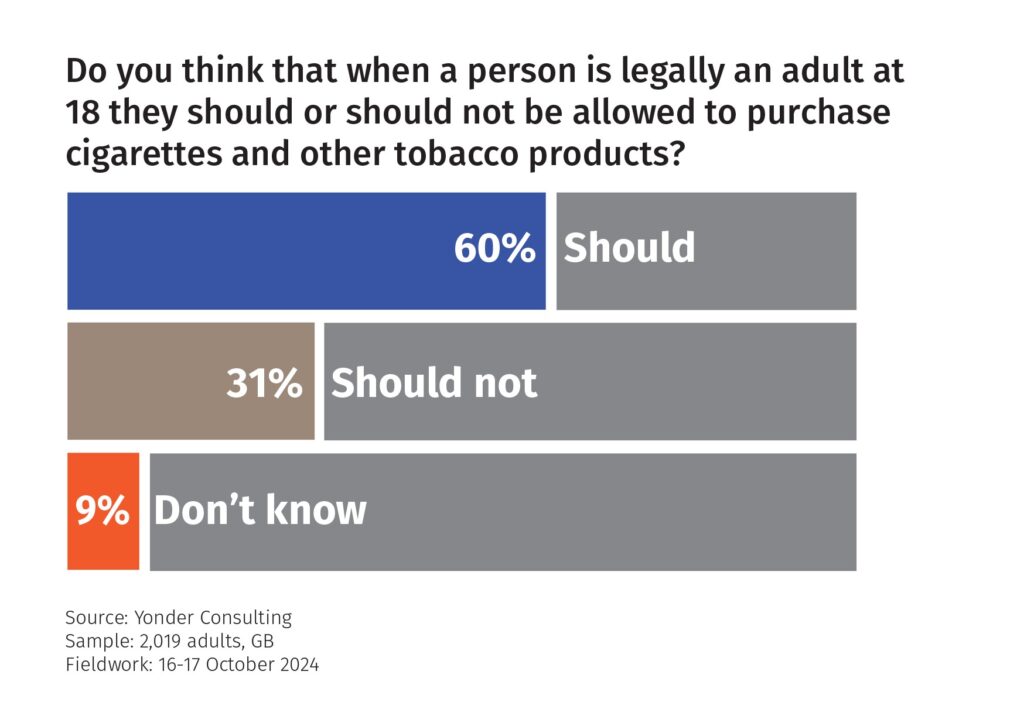
Campaigners are urging British lawmakers to reject plans to ban the sale of cigarettes and other tobacco products to future generations of adults.
Ahead of the second reading of the Tobacco and Vapes Bill on Nov. 26, the smokers’ rights group Forest says the proposal is “unnecessarily divisive” and is not supported by the majority of the public.
According to a recent poll commissioned by Forest and conducted by Yonder Consulting, 60 percent of respondents said that if people are allowed to drive a car, join the army, purchase alcohol, and vote at 18, they should also be allowed to buy cigarettes and other tobacco products.
Fewer than a third (31 percent) said they should not be allowed to purchase tobacco when legally an adult, while 9 percent said, “don’t know.”

MPs need to think very carefully about the unintended consequences of raising the legal age of sale of tobacco.
Simon Clark, director, Forest
“A generational ban on the sale of tobacco is unnecessarily divisive because it will create a two-tier society in which some adults have different rights to others,” said Forest Director Simon Clark.
“Eventually it will create the absurd situation whereby a 40-year-old can purchase cigarettes and other tobacco products, but someone born a few days later could be denied the same right.
“MPs need to think very carefully about the unintended consequences of raising the legal age of sale of tobacco.
“Denying future generations of adults the right to buy cigarettes and other tobacco products legally won’t stop people smoking.
“Creeping prohibition will simply drive the sale of tobacco underground and into the hands of criminal gangs and illicit traders.”






















